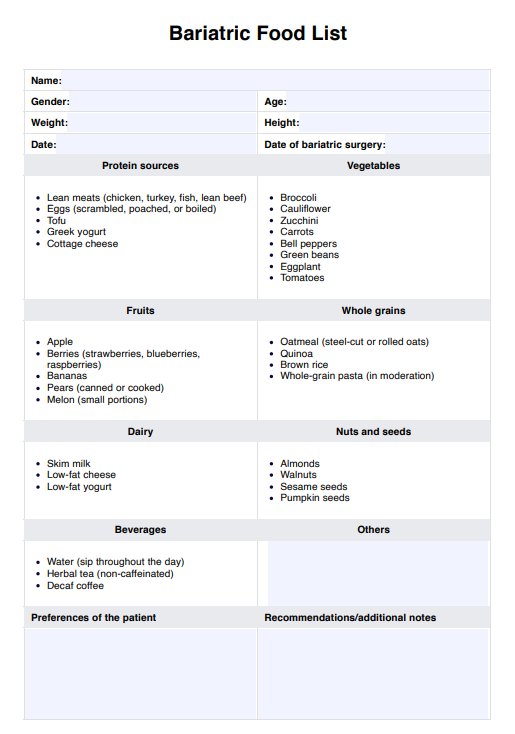What is a Bariatric Food List?
Bariatric foods are specially designed for individuals who have undergone bariatric surgery. These foods, encompassing soft foods, pureed foods, certain solid foods, etc., are carefully selected to meet post-bariatric surgery patients' unique dietary needs and restrictions. They are typically easy to digest, low in calories, and rich in essential nutrients to support recovery and long-term health.
The Bariatric Diet emphasizes consuming these foods while adhering to the dietary guidelines provided by healthcare professionals. It is not just a diet plan but a critical aspect of post-bariatric surgery care that promotes overall well-being alongside taking vitamin and mineral supplements, drinking fluids, limiting spicy food, etc. It can also help individuals identify and incorporate these specialized foods into their daily meals. It can guide making healthier choices at the grocery store or when dining out.
Healthcare professionals, such as bariatric surgeons and dietitians, often recommend a Bariatric Food Diet for patients to ensure a successful and safe post-surgery recovery.












